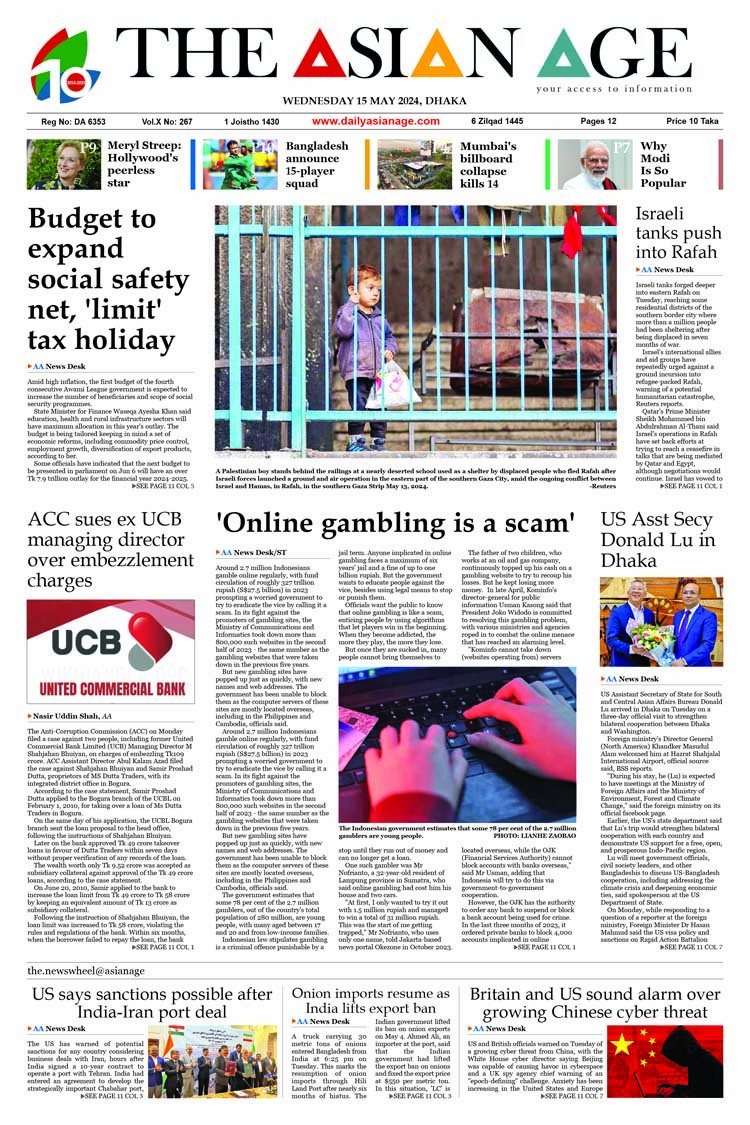Published: 12:00 AM, 16 May 2024
Subaltern Perceptions That Portray The Hardship of Strangulated Voices

Subaltern studies refer to the inclusion of the plight of downtrodden masses in literary, artistic and intellectual discourses. Subalternism is widely regarded as a literary theory through which the portrayal of the tormented and suppressed people of different societies is examined for better understanding of class variation, social injustice and lack of equity under the established social norms around us with special references to literature.
Literature with subaltern underpinnings has close interrelations with postcolonial thoughts and views because social perils like slavery, racism, discrimination and denial of humanitarian values were largely enforced on subjugated tribes and clans by the colonial powers. Books by Arundhati Roy, Amitav Ghosh, J M Coetzee, Aphra Behn, Gayatri Spivak, Harriet Beecher Stowe and some more authors from east and west are written from such perspectives which can be evaluated from subaltern angles. Fictional and non-fictional works with subaltern edges spotlight on the trials and tribulations of indigenous tribes, slaves, minorities and cornered women. The woes of victims under the jackboot of inhuman rulers and misanthropic socio-economic phenomena are described by authors in their books which are judged in terms of subalternism by readers, critics and academics.
Arundhati Roy’s fictional masterpiece The God of Small Things movingly illustrates the disgrace and ignominy people belonging to lower castes have to go through in some parts of India. In the non-fictional works by Arundhati Roy as well we come across the sufferings undergone by tribal clans, women, ethnic minorities and political dissidents. In this context we can refer to Arundhati Roy’s masterfully written books such as Listening to Grasshoppers, The Shape of the Beast, Capitalism: A Ghost Story, The Algebra of Infinite Justice and some more strikingly penned works. On the other hand, Arundhati Roy exercised her authorial dexterity for unveiling the agonies confronted by transgender people in her latest book The Ministry of Utmost Happiness. The title of this book is quite paradoxical and insinuating because Arundhati Roy touched upon an exasperatingly unhappy world through the characters she sketched in this fictional magnum opus.
Eminent South African novelist JM Coetzee’s fictional work Life & Times of Michael K is another monumental instance of literature with a leaning towards subalternism. In this novel Michael K is characterized as an extremely poor fellow with a cleft lip who encounters tough barriers due to his poverty and physical malformation while trying to carry his dead mother’s ashes to her birthplace. Michael K’s helpless condition and the repeated sufferings levied on him by the people around him who are more powerful makes the novel an ideal literary work to be appraised with subaltern visions.
Any disquisition about subalternism would remain unaccomplished if references are not made to Gayatri Spivak, one of the most esteemed Indian authors and scholars of the present time. Gayatri Spivak’s outstanding books Can the Subaltern Speak and Selected Subaltern Studies have made penetrative endeavors to unfold the deprivations faced by poverty-stricken men and women in the postcolonial era. She has also translated Mahashweta Devi’s acclaimed book Imaginary Maps. Imaginary Maps is an inquisitive book about the perils suffered by some tribal clans of India who are on the verge of extinction according to the author.
Harriet Beecher Stowe, an American author of 19th century, narrated the pathetic lives of Afro-American slaves in her most prominent book Uncle Tom’s Cabin. The ruthless maltreatment by the white people towards the black slaves during the days of slavery in America is piercingly represented by Harriet Beecher Stowe in this unforgettable book. Reading Uncle Tom’s Cabin is essential to realize the way a subaltern approach to slavery should be conducted in literary terms.
Aphra Behn’s book Oroonoko is another heartbreaking story about the inhuman torture black slaves had to endure under the colonial regime during the previous centuries. Similarly, Amitav Ghosh’s books The Hungry Tide, Sea of Poppies, River of Smoke and some more superb literary creations by this renowned author shed light on the impoverished and stigmatized predicaments destitute people are subjected to by tyrannical repressors.
The world around us in the current times is inflicted with war, communal violence, imperial onslaught and geopolitical turbulence. Under these circumstances, writers dealing with subaltern perceptions are actually speaking on behalf of billions of people struggling to make ends meet.
Ananda Rahman is a
freelancer and a columnist.
Ananda Rahman is a
freelancer and a columnist.




